Coronavirus and Medicare Beneficiaries
The COVID-19 (also called Coronavirus) cases continue to mount across the country. As more states begin dealing with clusters of the virus, policy makers have taken steps to ensure people with Medicare can safely access needed care.
According to a blog post on March 3rd, “the Centers for Medicare & Medicaid Services (CMS) clarified that coronavirus testing will be covered under Medicare Part B as a clinical diagnostic laboratory test, for which beneficiaries usually pay nothing. The coverage is retroactive to February 4, 2020, but providers will have to wait until April 1 to submit claims to Medicare.”
In light of the spread of COVID-19, we want to share specific information for older Americans about how to stay safe and healthy. Older Americans and people with pre-existing health conditions are at particular risk from this virus.
The following information from the World Health Organization (WHO) and the Center for Disease Control (CDC) will be helpful. Please contact your health care provider or local health department for more specific information.
What is the coronavirus?
The “Coronavirus disease 2019” (COVID-19) is a new (also called “novel”) respiratory illness that makes it harder to breath.
How does the coronavirus spread?
The virus is mainly spread between people who are in close contact with one another through respiratory droplets produced when an infected person coughs or sneezes. It is also possible that a person can get COVID-19 by touching a surface or object that has the virus on it and then touching their own mouth, nose, or eyes.
Can I get the virus from somebody who doesn’t know they are sick?
YES! The disease can be spread by infected people without — or prior to showing — any symptoms. It is extremely important to follow the public health guidelines before knowing of an outbreak in your community.
Why are older adults at greater risk for the effects of the coronavirus?
Early data suggest older people are at least twice as likely to have serious COVID-19 illness.
This may be because people’s immune systems change as they age, making it harder for their body to fight off diseases and infection.
Older adults are also more likely to have underlying health conditions (including diabetes and heart/lung/kidney diseases) that make it harder to cope with and recover from illness.
If you are at increased risk for COVID-19 complications due to age or because you have a severe underlying medical condition, it is especially important for you to take actions to reduce your risk of exposure.
People can help protect themselves from respiratory illness with simple preventive actions:
· Avoid crowded places and steer clear of close contact with people who are sick. This entails avoiding non-essential travel such as long plane trips, and especially not embarking on cruise ships. We are seeing sports leagues, colleges, businesses and churches shut down large gatherings to avoid the spread. You should think before going to any gathering of more than a few people.
· Avoid touching your eyes, nose, and mouth with unwashed hands.
· Wash your hands often with soap and water for at least 20 seconds.
· Use an alcohol-based hand sanitizer that contains at least 60% alcohol if soap and water are not available.
· If you have a fever, cough and difficulty breathing, seek medical care early. Stay home if you feel unwell. Follow the directions of your local health authority.
What extra steps can I take if I am in a high-risk group?
· Contact your healthcare provider to ask about obtaining extra necessary medications to have on hand. If you cannot get to the pharmacy, consider using mail-order for medications.
· Be sure you have over-the-counter medicines and medical supplies (tissues, etc.) to treat fever and other symptoms in case you become ill.
· Have enough household items and groceries on hand so that you will be prepared to stay at home for an extended period of time.
· Avoid crowds as much as possible. If you are in a crowded area take precautions to keep space between you and others.
· Stay home as much as possible. Consider ways of getting food brought to your house through family, social, or commercial networks.
What to do if you are sick with Coronavirus Disease 2019 (COVID-19)
Call ahead to a healthcare professional if you develop a fever and symptoms of respiratory illness, such as cough or difficulty breathing, and have been in close contact with a person known to have COVID-19, or if you live in or have recently traveled to an area with ongoing spread.
Where can I find more information about the coronavirus?
· The Centers for Disease Control and Prevention web page on “People at Risk”specifically addresses concerns older Americans might have.
· The World Health Organization also has an incredible amount of informationon the situation around the world.
(adapted from www.Medicare.gov, The Medicare Rights Center, Center for Disease Control, and the World Health Organization publications)


